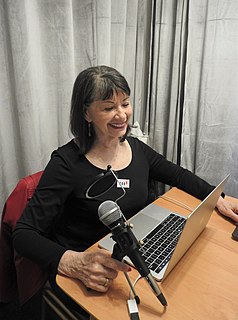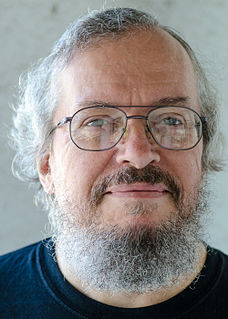A Quote by C. S. Lewis
Power to translate is the test of having really understood one's own meaning.
Related Quotes
Nothing discloses real character like the use of power. It is easy for the weak to be gentle. Most people can bear adversity. But if you wish to know what a man really is, give him power. This is the supreme test. It is the glory of Lincoln that, having almost absolute power, he never abused it, except upon the side of mercy.
It is unfortunately none too well understood that, just as the State has no money of its own, so it has no power of its own. All the power it has is what society gives it, plus what it confiscates from time to time on one pretext or another, there is no other source from which State power can be drawn. Therefore every assumption of State power, whether by gift or seizure leaves society with so much less power; there is never, nor can be, any strengthening of State power without a corresponding and roughly equivalent depletion of social power.
let us thank God for having made us this gift of death, so that life is to have meaning; of night, that day is to have meaning; silence, that speech is to have meaning; illness, that health is to have meaning; war, that peace is to have meaning. Let us give thanks to Him for having given us weariness and pain, so that rest and joy are to have meaning. Let us give thanks to him, whose wisdom is infinite.
If we understood the power of our thoughts, we would guard them more closely. If we understood the awesome power of our words, we would prefer silence to almost anything negative. In our thoughts and words we create our own weaknesses and our own strengths. Our limitations and joys begin in our hearts. We can always replace negative with positive.
So what is the difference between "power thinking" and "positive" thinking? The distinction is slight but profound. To me, people use positive thinking to pretend that everything is rosy, when they really believe that it's not. With power thinking, we understand that everything is neutral, that nothing has meaning except for the meaning we give it, and that we are going to make up a story and give something it's meaning.
Personally, I never understood the power of having books written about your experience - whatever that experience may be - until I wrote one and started hearing from teens. I just got an email from a reader who said that "Thirteen Reasons Why" was the first time they had felt understood. A book shouldn't be anybody's first time feeling understood and that's where censorship bothers me. These books need to be out there.
Life is a test. It is only a test--meaning that's all it is. Nothing more, but nothing less. It is a test of our convictions and priorities, our faith and faithfulness, our patience and resilience, and in the end, our ultimate desires. It is a test to determine if we want to be part of the kingdom of God more than we want anything else.
The writer's job, after all, is not to dictate meaning, but to give the reader enough pieces to create his or her own satisfying meaning. The story is truly finished—and meaning is made—not when the author adds the last period, but when the reader enters the story and fills that little ambiguous space, completing the circuit, letting the power flow through.
Consider a movie: it consists of thousands upon thousands of individual pictures, and each of them makes sense and carries a meaning, yet the meaning of the whole film cannot be seen before its last sequence is shown. However, we cannot understand the whole film without having first understood each of its components, each of the individual pictures. Isn't it the same with life? Doesn't the final meaning of life, too, reveal itself, it at all, only at its end, on the verge of death?




































